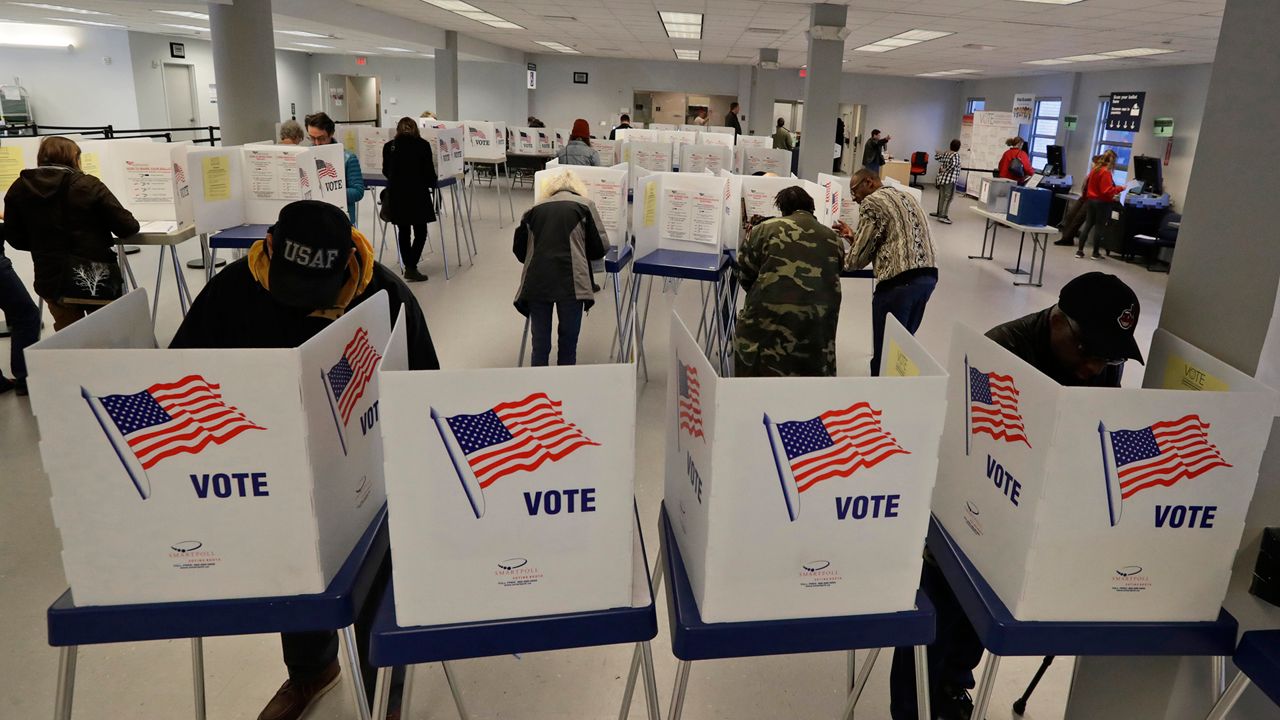BUFFALO, N.Y. — A loophole caused by redistricting litigation currently allows for already registered voters in New York to change their political affiliation up to and the day of the August 23 primary.
However, sources told Spectrum News 1 there is the possibility that loophole may still be closed.
In the spring, the New York courts decided to throw out the new maps the state Legislature drew for the state Senate and Congress and redrew the lines with the assistance of a special master. Because of the timing of that decision, a state Supreme Court judge scheduled a second primary date in August for those elections.
The revised political calendar did set a new date, July 29, for unregistered voters to register in person or postmark their registration for mail in order to vote in that primary. However, it did not set a new date to change affiliation.
Currently a voter could go to their polling place on the day of the election and ask for a form to change their affiliation and then vote in the corresponding primary. There are obvious political implications.
Voters from another party could change their affiliation in order to try to sway a primary, for instance, toward a more moderate candidate or a candidate they believe is more likely to lose the general election. Sources said the loophole also creates a lot of technical issues because New York is not set up for an open primary system.
For example, early voting starts in 10 days and is done all electronically on tablets. The polling places may not be able to automatically update the registration in order to allow someone to vote.
One possible solution could be to have these voters fill out an affidavit ballot which would be reviewed after the election. Another option would potentially be for the courts, specifically state Supreme Court Justice Patrick McAllister who issued the original redistricting decision, to issue an order closing the loophole.
The sources believe McAllister may decide to do something soon. It would potentially create some other concerns though because absentee voting has already started.
University at Buffalo political scientist Jacob Neiheisel said states that have same-day registration or open primaries do tend to see higher turnout numbers. In close races, typically primaries that are decided by a point or two, he said voters from other parties may sway elections.
However, Neiheisel does not expect to see that this year because he said few races will likely be that close, many voters will not know they are able to change parties, and others just aren't that strategic.
"We've done surveys on that and most voters are sincere," Neiheisel said. "Most voters are not doing that kind of thing. It might change in the future if there were some kind of elite-led motion or movement to do it but most voters are not doing that on their own."
One race to watch could potentially be the new 23rd Congressional District primary between Carl Paladino and Nick Langworthy. The winner of that primary will be a heavy favorite to win the general election and if it is close, Neiheisel said Democrats and even Conservative voters, who he believes may support Langworthy, could sway that race. Even still, he believes it's unlikely.



